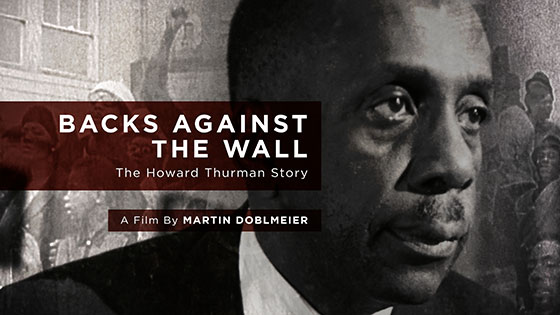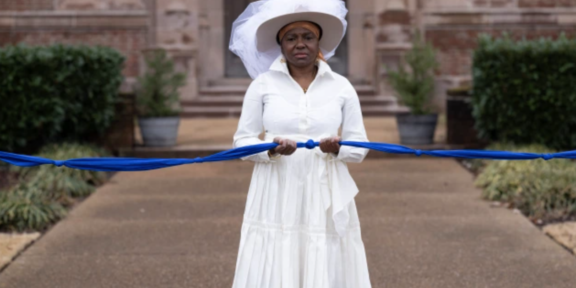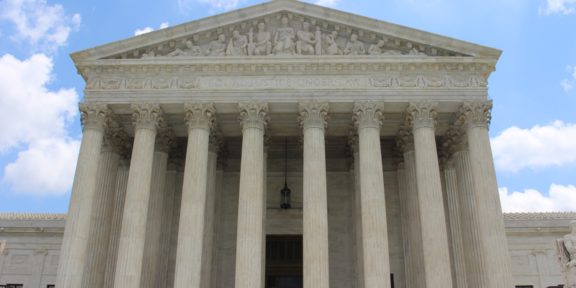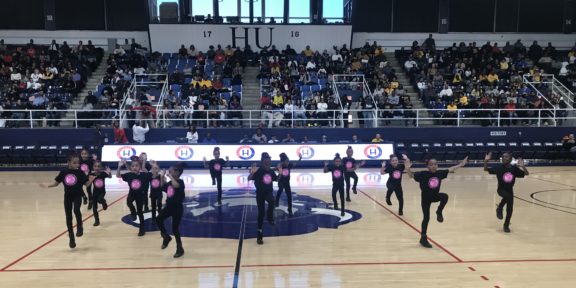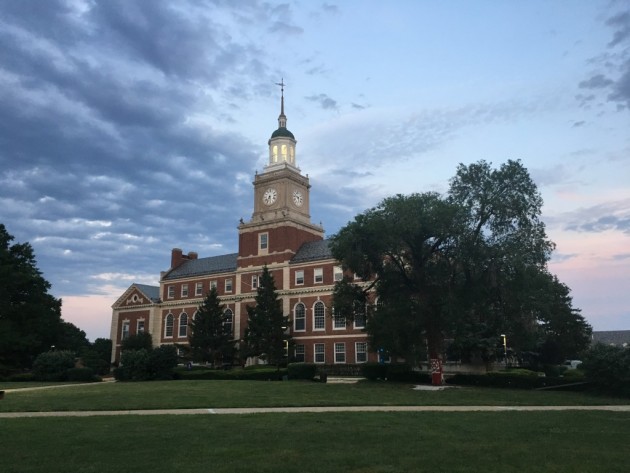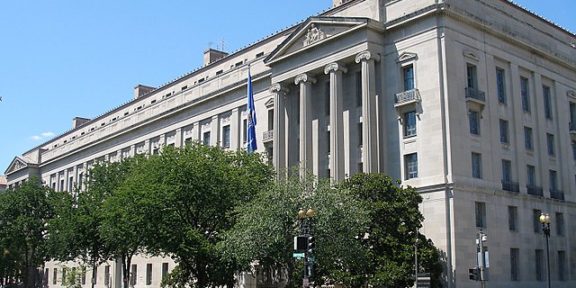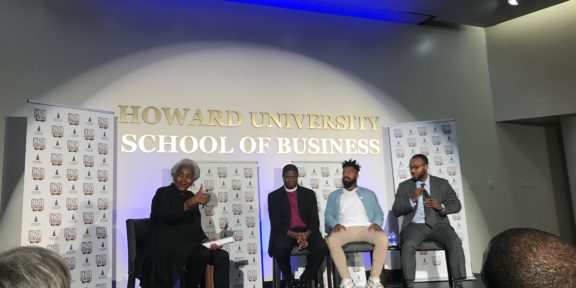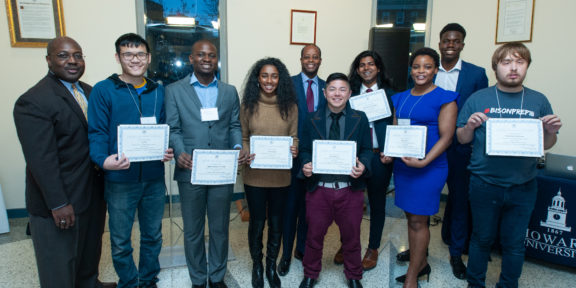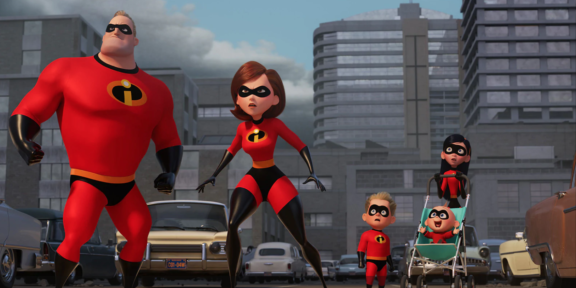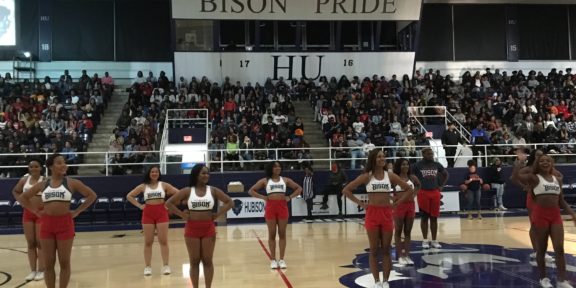By Kyana Harris, Howard University News Service
Washington DC— As the life and legacy of theologian Howard Thurman were examined in the docu-film Backs Against the Wall (Howard Thurman Story) a lingering question echoed from the presentation: “What would Jesus have to say to the man whose back is against the wall?”
For Thurman, that question helped to guide him throughout his life and his decisions.
The docu-film, which had a special screening last week at WHUT in Washington D.C., is part of a series of biographies that filmmaker Martin Doblmeier is working on. This is the 33rd film he has created on the topic of film and religion.
Howard Thurman is responsible for building the spiritual framework for the civil rights movement. One of his best-known works is the book, “Jesus and the Disinherited.” Civil rights hero, Martin Luther King Jr. was rumored to have carried a copy of this book with him as he navigated through the Jim Crow South to enact change. First published in 1949, this text not only spoke to Christianity but also identified black people as being God’s children, despite the oppression they face. “The basic fact is that Christianity, as it was born in the mind of this Jewish teacher and thinker, appears as a technique of survival for the oppressed,” Thurman wrote.
When asked why this film is so important, Howard University’s dean of the Rankin Memorial Chapel Reverend Bernard Richardson, highlighted the fact that Howard Thurman didn’t just make black history, but also Howard history. He served as dean of Rankin Memorial Chapel from 1932 to 1943.
“We’re learning the significance of Howard, sometimes we don’t recognize greatness when it’s close to us.”
Jefferi Lee, general manager of WHUT, echoed Richardson’s statement.
“It highlights someone who means a lot to us at Howard University,” said Lee.
Because he was a lesser-known individual in the civil rights movement, he is rarely mentioned in history books. The fact that he was also a member of the Howard community is also a little-known fact.
“The Howard Thurman we know is who he became here in this environment at Howard University. Making a film like this, I had to consider how many people aren’t familiar with Howard Thurman and also recognize those who hold him near and dear. So making this film was all about finding that balance,” Doblmeier said.
Those that knew him best described him as a mystic and spiritual activist. Although he was not on the front lines of the civil rights movement, his teachings left a lasting impression on its leaders. “He determined his role, as opposed to it being given to him by others. He was independent,” said a longtime friend of Thurman, Vernon Jordan.
If you are interested in learning more about Howard Thurman, watch the docufilm here.

